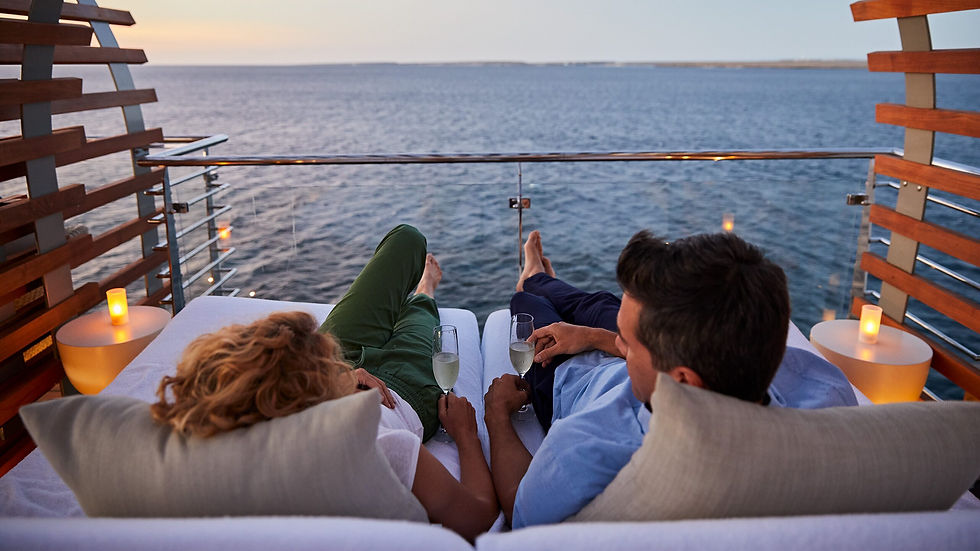Steps towards Eco-Friendly Cruising
- Yacht Services (Asia)

- Sep 4, 2025
- 2 min read

An increasing number of yacht owners, equipment manufacturers and shipyards are seeking to reduce their environmental impact. Here is a quick overview of some of the ways yacht manufacturing, operation and maintenance is moving to a more ecofriendly stance.
Hull design
This is one of the most impactful areas and one in which significant progress is being made. This is both enhanced design and manufacturing technologies which allow sleek designs to be crafted in eco-friendly ways.
The largest impact are better aerodynamic and hydrodynamic designs which reduce wind-hull-water friction lowering both fuel consumption and exhaust emissions. While less impactful, better hull design is also lowering levels of noise pollution which contributes to a more sustainable marine environment.
Propulsion systems
Today’s systems are going beyond manufacturers seeking to improve engine efficiency. In particular:
1. Underwater components are being designed to reduce drag
2. Planing systems are increasingly available on production yachts while power vessels, particularly twin hulls, can retrofit foils to reduce drag and increase speed
These innovations lower fuel consumption and engine omissions when underway. They also increase boat speed allowing vessels to be underway for less time further lowering emissions.
3. Hybrid systems allow wind and solar power generation to assist in propulsion. While fully electric vessels are feasible for small to mid-sized sailing vessels
4. Greater use of increasingly more efficient solar panels in yacht designs produce clean energy for tasks such as charging batteries which previously was done with fossil fuel powered generators
These last two areas negate a degree of fossil fuel consumption and emissions from ever being produced.
Non-teak decks
Traditional teak decks are beautiful, but they are environmentally costly both in their production requiring the cutting and milling of trees and in their through-life maintenance cost. Most vessels now are offered with synthetic, more eco-friendly decking in place of teak.
Waste
Awareness of the need for ocean conservation has increased significantly in the last decade. Eco-friendliness here however proceeds at different rates:
1. Recycling products and avoiding the disposal of garbage overboard is now the norm in most waters
2. However, while more rigid rules on the disposal of human, chemical and oil waste have been introduced, older craft built without holding tanks will take years to slowly be replaced
Carbon offset
While not related to an improvement in vessel eco-friendliness, offsetting is a practice most yacht owners should be using to contribute to a healthier environment.
If you have any questions, Yacht Services (Asia) has specialists in yacht charter, ownership and management. Contact us at any stage and we will be happy to assist.
%20rectangle%20logo.png)



Comments